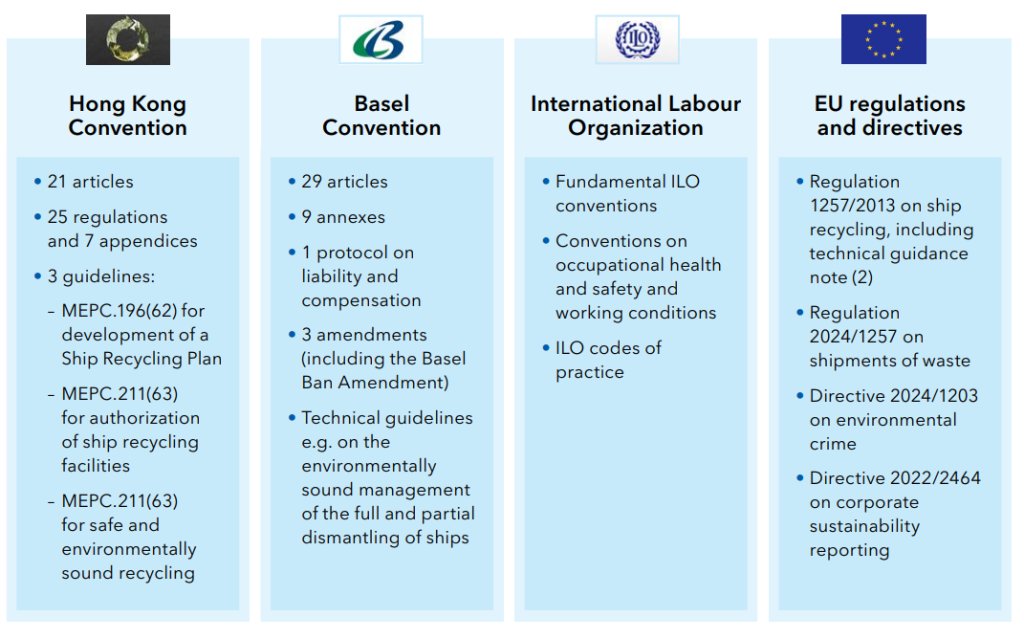DNV has issued guidance on how shipowners can navigate the complexities of sustainable ship recycling under various regulations.
The “Safe and Green Ship Recycling for Shipowners” report explores key considerations for shipowners, including sustainable recycling methods, managing environmental impacts, and navigating legal obligations. It also provides a breakdown of roles and responsibilities throughout the recycling process to help operators align with global standards.
Hong Kong International Convention (HKC)
The Hong Kong International Convention (HKC) for the safe and environmentally sound recycling of ships are global regulations prepared by the IMO. Regulations in the HKC are applicable to ships and ship recycling facilities.
Basel Convention (BC)
The Basel Convention (BC) for the control of transboundary movements of hazardous wastes and their disposal was adopted under the United Nations Environment Programme (UNEP) and includes the Basel Ban amendment for the control of movement of waste between developing and developed countries. Regulations in the BC are applicable to hazardous waste and export/import between nations.

International Labour Convention (ILO)
The International Labour Convention (ILO) is the UN specialized agency founded in 1919 which seeks the promotion of social justice and internationally recognized labour standards.
EU Ship Recycling Regulation (EU SRR)
The EU Ship Recycling Regulation (EU SRR) is applicable to ships and ship recycling facilities of EU member states (including Norway and Iceland), but also ships visiting a port in the EU/EEA and ship recycling facilities in third countries that have applied to be included in the European List. Other EU directives may be applicable, such as those on waste shipment, environmental crime, and corporate sustainability reporting.
National regulations
National regulations may also apply to protect human rights and prevent illegal ship recycling. Violations may be sanctioned as criminal offences in the corresponding local law.
Guidance on recycling regulations
DNV has advices the following steps to ensure compliance with the relevant regulations:
All shipowners should:
- Investigate the landscape of regulations, obligations, and commitments applicable to your company.
Shipowner companies in the EU shall (as applicable):
- Prepare sustainability due diligence policies as per the The EU Corporate Sustainability Reporting Directive (CSRD). It is recommended to have a separate sustainable ship recycling policy.
- Prepare ESG reports on circular economy (ESRS E5) and social standards of workers (ESRS S2). It is recommended to include ship recycling and workers’ rights at ship recycling facilities in the reporting.
Implications for shipowners located outside the EU:
- It is recommended to have a sustainable ship recycling policy in line with the OECD Guidelines.
- Shipowners shall follow national regulations; see Appendix 1 for examples.
To remind, BIMCO, Bangladesh, India, Norway, Pakistan and the ICS, have submitted a paper ahead of the 81st Marine Environment Protection Committee (MEPC) meeting on 18-22 March 2024, to highlight the need to solve possible conflicting requirements of the Hong Kong Convention and the Basel Convention which could have severe consequences, if unresolved.


































































